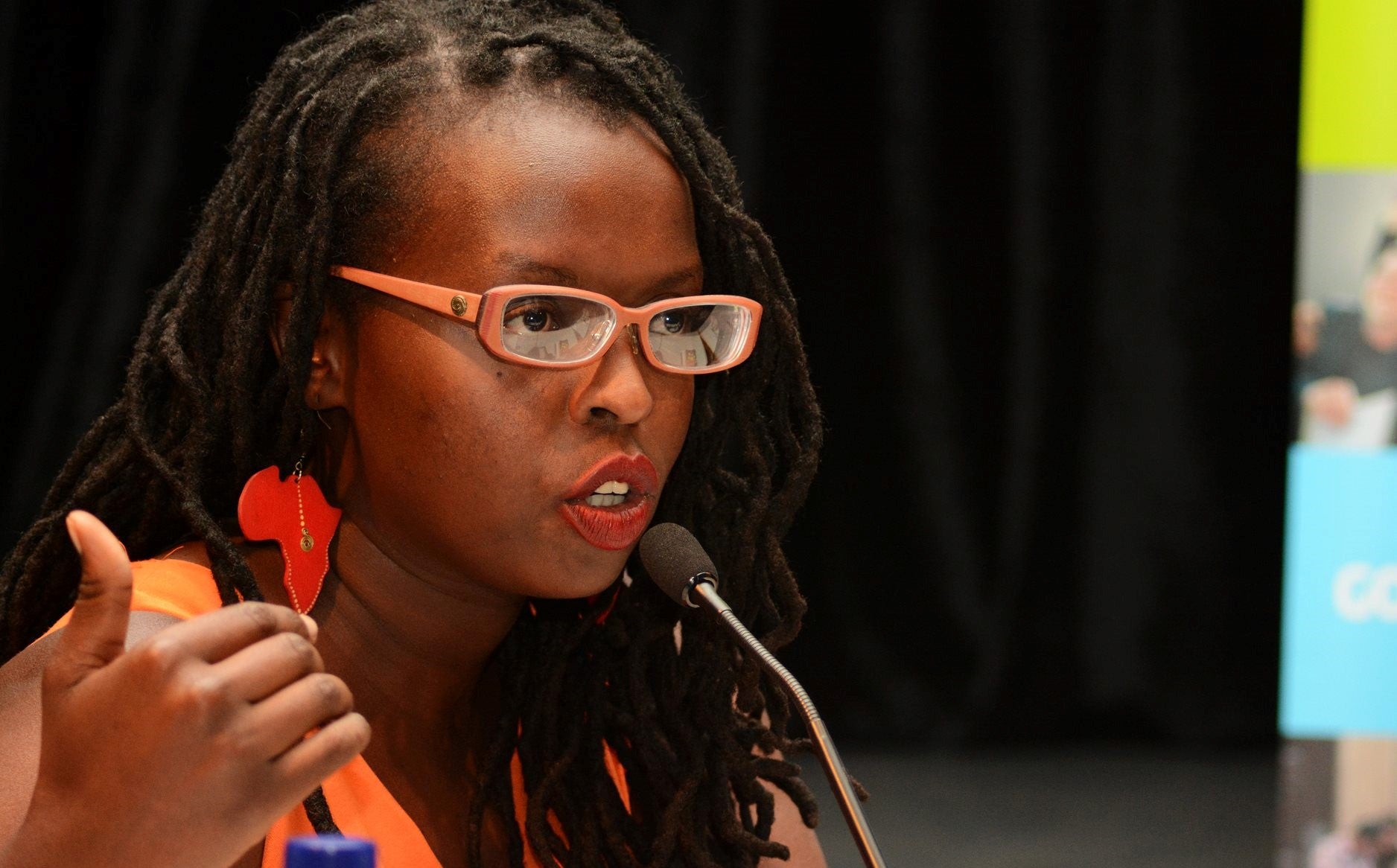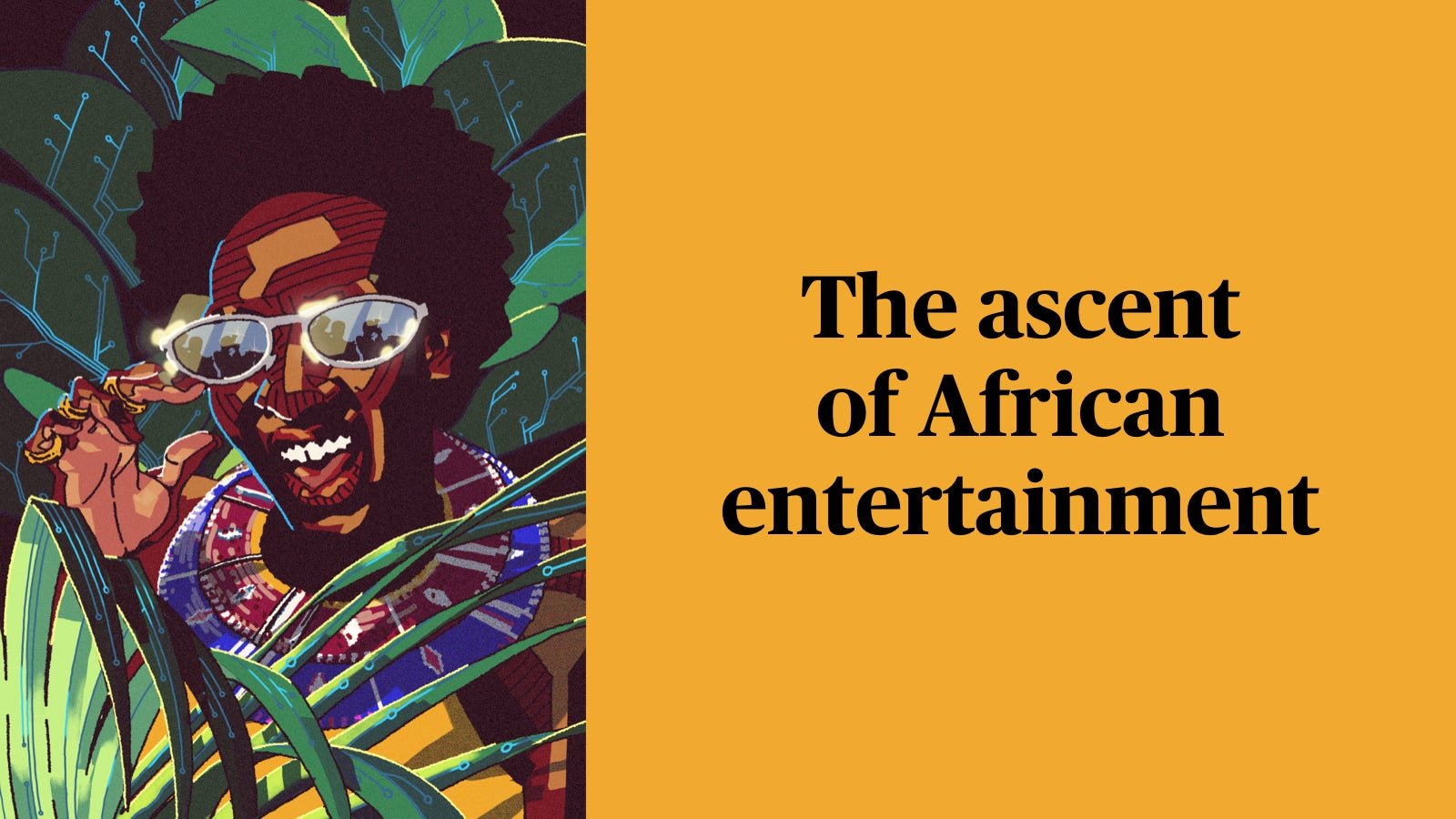Introducing our new editor, African entertainment ascends, Twitter ban pain
Hi Quartz Africa readers!


Hi Quartz Africa readers!
Ciku here, the newly appointed editor of Quartz Africa.
I consider myself fortunate to have friends from different parts of Africa who are entrepreneurs and innovators. I listen with pride as I hear them speak about their love of our continent, the opportunities, and the untapped potential in their various fields of work. As a pan-African myself, I root for them to succeed.
On the flip side, I think of all their unique struggles. One friend in Dakar wants to source all the produce for her shop from African countries, but is now having to rethink that plan. Her products from Tanzania spent months at the port and eventually cost her more than five times as much as if she had ordered alternatives from the US.
Another, a communication expert in Lagos, has to explain to her international clients that generator and diesel costs are volatile business expenses. In Addis Ababa, one peer wonders how to attract foreign investors when they will not be able to get their hard currency out of the country when they need it.
At Quartz Africa, we pride ourselves on having a balanced, insider view with a network of writers across the continent. My belief is that by combining compelling storytelling with fact-based data and analysis, we can tell stories that can influence national and regional policy. Our focus on innovation, technology, business, and the players behind these sectors are the best case we can give for an interconnected Africa, one story at a time.
I am truly honored to be taking over this role of Quartz Africa editor from Yinka Adegoke, someone I admire and respect so much; a person who charted the path for Quartz Africa and created a space for writers, including myself. My hope for the next phase is to be even more ambitious, cast a wider net for our stories and contributors, and look at ideas through Quartz’s revamped mission to “make business better.”
As we write, we ask, what is business doing to make life better on the continent? How can we tell these stories in a way that can eventually affect policy? I welcome you to keep supporting us as we embark on this new chapter. —Ciku Kimeria, Quartz Africa editor, Nairobi (read a longer version of this essay here.)
The ascent of African entertainment

African cultures have long inspired the world through mediums such as film and music. But now, investors, international companies, and social media platforms are showing a huge appetite for the space, prompting growth in startup funding, investment in original content, and attracting global audiences.
This is opening up new pathways for African creatives to share their work, and manage their careers, in ways that were previously unimaginable.
In this week’s field guide, Quartz members can learn about how African artists and entrepreneurs are spotting opportunities and drawing up deals on their own terms:
Get inspired by their stories by signing up for a Quartz membership. You can use the code QZEMAIL to get 50% off membership when you subscribe here.
…and more from Quartz Africa
Can Nigeria still be a tech hub without Twitter? In recent years, Lagos has become Africa’s most attractive tech hub for investors. But that could be imperiled by the government’s decision to suspend Twitter’s operations in the country, writes Tolu Olarewaju.
Egypt joins the vaccine manufacturing race. After several months of working with China, Egypt is close to producing the first Chinese Covid-19 vaccine manufactured in Africa, Uwagbale Edward-Ekpu reports. The development marks a significant step in a push to increase Africa’s ability to produce vaccines locally.
A different tack in Mali. Two military coups in the span of nine months have left Mali in a precarious state. The first coup saw economic sanctions, which compounded the country’s struggles with its failing economy, jihadist conflict, and Covid-19. This time around, Stephen Kafeero writes, the AU and the EU are trying diplomacy.
A turning tide on Africa reparations? Germany’s formal apology to Namibia for committing genocide in the country has many feeling shortchanged. But it’s also reupping the question of what’s owed in other African countries by former colonial powers, Priya Sippy reports.
Table of the week
Telecom and tech companies in Africa are reaching new milestones, writes Tawanda Karombo, by capitalizing on renewed international investor interest to pour money into infrastructure development, finance the roll-out of data centers, propel fiber connectivity to new areas, and deploy new mobile networks in key markets.

Chiedza Madzima, the head of operational risk at Fitch Solutions, emphasizes that the growing international investment into “long-dated resources (such as bonds and loans) into Africa to fund investments will have a positive impact” in the long run. “This capital is being funneled toward infrastructure—which also points towards the increasing bankability of projects,” she said.
Dealmaker
WhereIsMyTransport, a South African mobility tech startup, has raised a $14.5 million Series A extension round to continue its expansion across emerging markets. The funding was co-led by Naspers, Cathay AfricInvest Innovation Fund, and SBI Investment, with participation from Wuri Ventures, and Capria Ventures.
MoneyHash, a Cairo-based fintech startup, has raised an undisclosed pre-seed investment. COTU Ventures led the round, while Ventures Platform, Kepple Africa Ventures, and some angel investors also participated. MoneyHash, currently testing its service in private beta, plans to go live soon in Egypt, Saudi Arabia, and the United Arab Emirates.
Pawame, a Kenyan solar energy startup, has raised $1.7 million in grant capital and an additional $750,000 in equity to fund its geographic expansion. The grants were provided by the Netherlands Enterprise Agency, Energy and Environment Partnership, SNV, AECF REACT Kenya, and Kenya Off-Grid Solar Access Project (KOSAP), while the equity funding includes $250,000 from Launch Africa Fund.
Other things we liked
The African women fighting FGM. Pandemic lockdowns have seen a resurgence in female genital mutilation in some African countries. For the Guardian, Sarah Johnson reports on how local activists “on a rampage” are effectively using the media to combat the tradition.
Will new relations bode well for eastern DRC? President Felix Tshisekedi has sought to smooth ties with Kenya, Uganda, and Rwanda since taking office in 2019. In African Arguments, Stephanie Wolters explains how crucial these foreign relationships could be to addressing insecurity in eastern DRC.
Beauty in plain sight. A BBC photo essay celebrates the work of Kenyan photographer Thandiwe Muriu, who uses bold, psychedelic, African-print fabrics to camouflage her models. The breathtaking images make it impossible to ignore the models but are also a reflection of the invisibility Muriu experiences as a Black, female photographer.
Hidden histories. Six paintings commissioned by English Heritage, a British heritage charity, bring to a wider audience captivating stories of the African diaspora in England’s history, Mark Brown reports in the Guardian.
Just get a bigger bug. Mosquito-borne diseases kill hundreds of thousands of Africans every year. Keeping the creatures away is an urgent, yet familiar challenge. But, as James Gallagher writes for the BBC, researchers have found that infecting mosquitoes with another insect could cut cases of dengue fever, a dangerous illness, by more than three quarters.
🎵 This brief was produced while listening to a custom-made Spotify playlist featuring some of the biggest African stars right now, in celebration of our field guide on African entertainment. Listen along here.
Our best wishes for a productive and ideas-filled week ahead. Please send any news, comments, suggestions, ideas, up-and-coming artists, and great pitches for Ciku to review to [email protected]. You can follow us on Twitter at @qzafrica for updates throughout the day.
If you received this email from a friend or colleague, you can sign up here to receive the Quartz Africa Weekly Brief in your inbox every week. You can also follow Quartz Africa on Facebook.